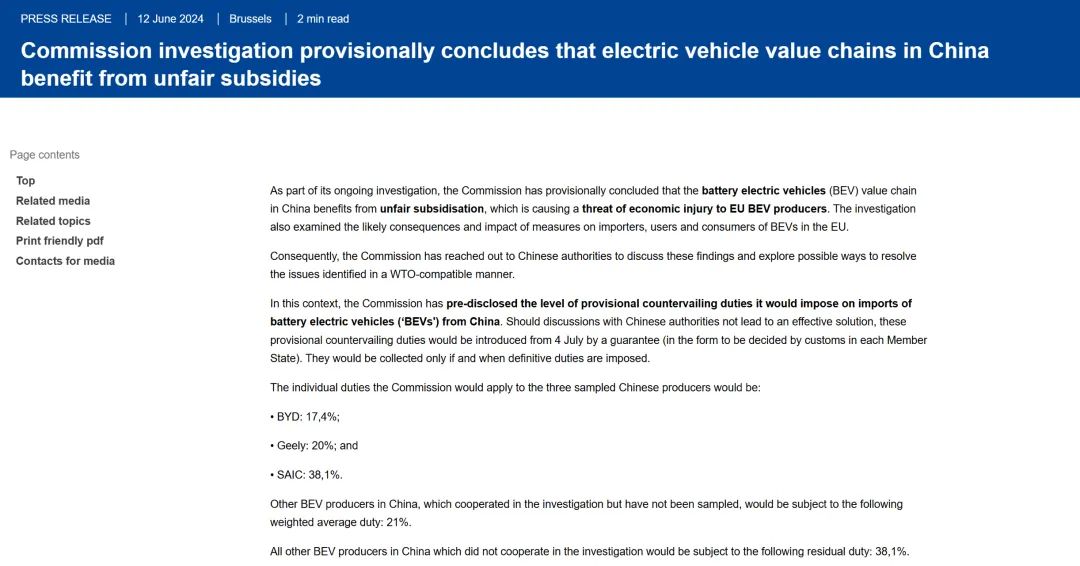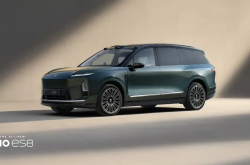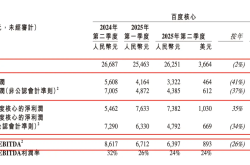Hurting Others and Yourself! The EU Plans to Impose Anti-Subsidy Tariffs of 17.4%-38.1% on Chinese Electric Vehicles
![]() 06/14 2024
06/14 2024
![]() 460
460
On June 12, the European Commission announced that it intends to impose temporary anti-subsidy tariffs on electric vehicles imported from China starting from July 4. A spokesman for China's Ministry of Commerce stated that the European Commission disregards the objective fact that the advantages of Chinese electric vehicles come from open competition and disregards WTO rules, which is a blatant act of protectionism.
On June 12, the European Commission released the preliminary ruling disclosure on the anti-subsidy investigation of Chinese electric vehicles, stating that if effective solutions cannot be reached through discussions with China, temporary anti-subsidy tariffs will be imposed on electric vehicles imported from China starting from July 4. Among them, the three Chinese automakers BYD, Geely Auto, and SAIC Motor, which underwent sampling investigations, will be subject to tariffs of 17.4%, 20%, and 38.1%, respectively; other Chinese pure electric vehicle manufacturers participating in the investigation but not yet sampled will be subject to a 21% tariff; all other Chinese pure electric vehicle manufacturers that do not cooperate with the investigation will be subject to a 38.1% tariff; Tesla vehicles imported from China may be subject to a separate tariff.

Regarding the EU's approach of disregarding facts and reversing its actions, China's Ministry of Commerce, China Association of Automobile Manufacturers, the European Chamber of Commerce in China, automakers, and various sectors and individuals have expressed strong protests and resolute opposition. The three major German automakers also stated their position in the first instance, describing it as a "wrong decision".
Reversing Actions,
Using the Name of Investigation to Suppress
According to the announcement, the European Commission believes that the value chain of Chinese-made pure electric vehicles benefits from unfair subsidies, posing a threat of economic losses to EU pure electric vehicle manufacturers. Against this background, the European Commission has preliminarily disclosed the level of temporary anti-subsidy tariffs to be imposed on pure electric vehicles imported from China. If effective solutions cannot be reached through discussions with China, these temporary anti-subsidy tariffs will be introduced from July 4 through guarantees (the form of which will be determined by each member state's customs). As stated by a spokesman for China's Ministry of Commerce on June 12, the findings in the European Commission's ruling disclosure lack factual and legal basis. The European Commission disregards the objective fact that the advantages of Chinese electric vehicles come from open competition, disregards WTO rules, disregards the full cooperation of relevant Chinese enterprises in the investigation, artificially constructs and exaggerates so-called "subsidy" items, abuses the "available facts" rule, and imposes excessively high subsidy rates, which is a blatant act of protectionism, manufacturing and escalating trade frictions, using the name of "maintaining fair competition" to destroy fair competition, which is the greatest "unfairness".
"Since the European Commission initiated an anti-subsidy investigation into Chinese electric vehicles in October last year, the Chinese automotive industry has actively cooperated with the investigation from the perspective of maintaining the security and stability of the China-EU automotive industry chain. Relevant enterprises have carefully provided materials in accordance with the requirements of the investigating authorities. However, during the investigation, the European side预设调查结果, selectively sampled enterprises, abused investigative powers, arbitrarily expanded the scope of the investigation, and seriously distorted the investigation results." Regarding the preliminary ruling disclosure of the EU's anti-subsidy investigation into Chinese electric vehicles, the China Association of Automobile Manufacturers stated on June 12 that it firmly cannot accept it and hopes that the European Commission will not regard the current staged phenomenon of vehicle trade, which is inevitable in the development of the industry, as a long-term threat, nor politicize economic and trade issues, abuse trade relief measures, and avoid damaging and distorting the global automotive industry supply chain, including the EU, and maintain a fair, non-discriminatory, and predictable market environment.
The European Chamber of Commerce in China also discussed the "unfair" behavior during the investigation in the "Statement on the European Commission's Preliminary Disclosure of Temporary Anti-Subsidy Tariffs on Chinese Imported Electric Vehicles" (hereinafter referred to as the "Statement") released on June 12: "Multiple enterprises and stakeholders have reflected that the European side abused investigative powers during the investigation and engaged in improper investigative actions, including some investigative directions and areas exceeding the scope of the anti-subsidy investigation, making unreasonable demands on enterprises that exceed their scope of evidence, and not providing enterprises and various stakeholders with sufficient time to respond and provide evidence." In addition, the "Statement" pointed out that at several hearings held in Brussels, Chinese enterprises and relevant parties raised questions about the problems that arose during the investigation, but the European side did not respond. On June 12, a spokesman for the Ministry of Commerce stated that China urges the EU to immediately correct its wrong practices, effectively implement the important consensus reached at the recent tripartite meeting between leaders of China, France, and the EU, and properly handle economic and trade frictions through dialogue and consultation. China will closely monitor subsequent progress in the EU and will resolutely take all necessary measures to firmly defend the legitimate rights and interests of Chinese enterprises.
Difficult to Avoid a "Boomerang Effect,"
A "Lose-Lose" Decision
Ironically, after the European Commission's preliminary ruling disclosure, it immediately sparked a huge wave of opposition domestically. The first is the official position expressed by European countries on June 12. A spokesperson for the German government stated that the EU should engage in constructive dialogue with China on related issues. Germany hopes to see not more restrictive measures but a fair and competitive international trade environment. Just a few days ago, German Chancellor Olaf Scholz publicly stated that the German automotive industry is benefiting from its business in China, "We should not close our markets to foreign companies because we do not want others to close their markets to our companies." The Hungarian Ministry of National Economy stated that Hungary does not support the EU imposing temporary anti-subsidy tariffs on Chinese electric vehicles and that the EU should support trade liberalization rather than imposing punitive tariffs. The Norwegian (non-EU member state) Finance Minister Vidar Helgesen announced that Norway will not follow the EU in imposing temporary anti-subsidy tariffs on Chinese electric vehicles, stating that imposing tariffs on Chinese electric vehicles is not relevant to the Norwegian government and that this approach is not advisable. The second is that automotive industry organizations also voiced their opinions on the same day.
Simon Schutz, the chief spokesman for the German Association of the Automotive Industry,直言不讳地说,加征关税对提高欧洲整体竞争力毫无助益。"Trade protectionism is definitely not the right approach, as it cannot benefit any country or avoid trade conflicts," said Schutz. "There are no winners in trade conflicts, only losers." He stated that rational dialogue should be used to jointly find solutions that are in the interests of both parties, but the solution "is definitely not to impose tariffs." Even the three major German automakers - Mercedes-Benz, BMW Group, and Volkswagen Group - also expressed their opposition on June 12.
Mercedes-Benz stated that it has always supported free trade based on WTO rules and that allowing protectionism to gain ground would have negative consequences for all stakeholders. BMW Group Chairman Oliver Zipse believes that the European Commission's decision to impose tariffs on Chinese electric vehicles is wrong. Such protectionist measures as increasing import tariffs cannot help companies enhance their global competitiveness. BMW Group firmly supports free trade. Volkswagen Group stated that the EU's "decision has more negative impacts than any potential benefits for the European automotive industry, especially for Germany," and that it has exacerbated the current sluggish demand for electric vehicles in Germany and Europe. More importantly, if the EU officially implements the plan to impose temporary anti-subsidy tariffs on electric vehicles imported from China, it will inevitably have a "boomerang effect."
According to foreign media reports, nearly half of the Chinese-made electric vehicles exported to Europe come from non-Chinese automakers such as Tesla, Volkswagen, and Honda. Sun Xiaohong, the secretary-general of the Automobile Branch of the China Chamber of Commerce for Import and Export of Machinery and Electronic Products, previously told the media that the EU's move ostensibly aims to protect European industries but actually harms the interests of European automakers and undermines China-EU economic and trade cooperation. The EU's imposition of tariffs on Chinese electric vehicles is a "lose-lose" choice.
Achieving Sustainable Development,
Open Cooperation is the Right Path
In recent years, China's new energy vehicles have rapidly emerged, continuously entering new countries and regions, and gaining recognition from more and more international consumers. For example, in 2023, China's new energy vehicle exports reached 1.203 million units, of which SAIC Motor's total new energy vehicle exports to 13 European countries reached 242,900 units. The reason for this is that the advantages of China's new energy vehicle products are not formed by relying on so-called huge subsidies, but entirely on technological innovation, product optimization, and industrial upgrading. As mentioned in the "Public Statement of SAIC Motor on the European Commission's Anti-Subsidy Tax Decision" released on June 13, 2024: "Over the past decade, SAIC Motor has invested nearly 150 billion yuan in research and development in core technology fields such as new energy and intelligent connectivity, and has obtained more than 26,000 valid patents. We rely on technological innovation, not government subsidies, to provide consumers in China and more than 100 other countries and regions with environmentally friendly and high-quality products."
It should be emphasized even more that as beneficiaries of economic globalization, China's new energy vehicles are also important contributors, not only enriching global supply but also making significant contributions to global efforts to address climate change and green transformation. "The entry of more Chinese electric vehicle brands into the UK has not only reduced the price of electric vehicles but also encouraged industry innovation, benefiting both consumers and the automotive industry," said Mike Hawes, Chief Executive Officer of the Society of Motor Manufacturers and Traders in the UK. However, our firm commitment to the bright path of open cooperation has instead led to suppression from some countries. For example, on May 15 this year, the United States officially announced the imposition of tariffs on Chinese electric vehicles and other products, increasing tariffs on semiconductors, electric vehicles, and lithium batteries from the original 25%, 25%, and 7.5% to 50%, 100%, and 25%, respectively.
Regarding the discriminatory approach of the United States, which violates WTO rules, even Tesla CEO Elon Musk expressed "surprise" and stated that "limiting trade freedom or distorting the market is not advisable." On June 5, local time in the United States, UN Secretary-General António Guterres stated in a speech: "Nearly a decade after the adoption of the Paris Agreement, the goal of limiting long-term global warming to 1.5°C remains precarious. In fact, the world is generating such a large amount of carbon emissions so quickly. By 2030, it is almost certain that the temperature rise will be well above the 1.5°C limit." Facing ecological and environmental challenges, humanity is a community with a shared future, and no country can remain immune. Based on this, whether it is the United States or the EU, providing excuses for protectionism and restricting the export of China's new energy products will only delay the development of the world's new energy industry, slow down the pace of new energy technology progress, and hinder the global green and low-carbon transformation process. As stated by a spokesman for China's Ministry of Commerce: "From a global perspective, only cooperation and win-win can better and faster address climate issues such as global warming and achieve sustainable human development."
Image: From the internet
Article: Auto Horizons
Typesetting: Auto Horizons








